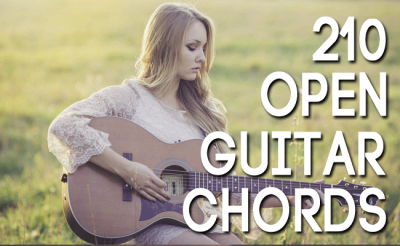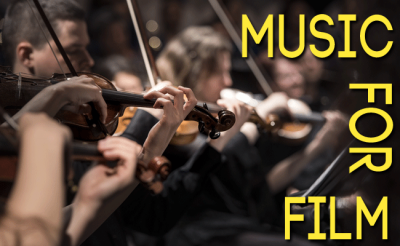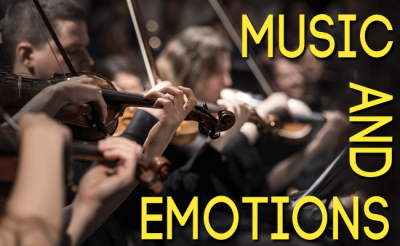10 Powerful Power Chord Variations
‘Radical!!!’ – Bill & Ted

Power chords are still an essential part of rock music as well as many other guitar dominated music styles. Nonetheless, standard power chords become boring quite fast to every over average guitar player. Power chords can be used perfectly as a musical device within a song but shouldn’t be the center of it. A nice way to bring a little bit more flavour into your power chord strumming is to use one of these ten creative power chord variations.
In this article you find nine power chord variations that I gathered over the years by means of experimenting and listen to many different styles of music. I not only give you a chord scale of each power chord but also a riff that I wrote by use of them. The riffs come in form of tabs and a short video clip. In the last years I have been leaving behind my electric guitar, picking up my steel acoustic guitar more often. So don’t be surprised seeing me playing these rocking power chords on my father’s old steel string guitar. I am quite faithful that you will be able to play them on your distorted guitar anyway.
For notating the riffs I use Guitar Pro 6 (affiliate link) an awesomely simple tab editor and LilyPond, an open source music engraving software, for my chords.
1. standard power chords
Difficulty: ✯
Strumability: ✯✯✯✯
Type: Chord/Melody
The nightmare of all counter point teachers: The standard power chord as we know it. Tonic, fifth and octave form a chord that is in classical use only to be found at the end of cadences as a finishing chord. Played in succession though power chords can actually be seen as a melody with extra rocking overtones (fifth and octave).
The reason this chord got so famous on guitar is probably that it is so freaking easy to play. Even after the fifth beer, power chord progressions are playable by every average skilled punk rock kid. On the other hand the sound of this chord just perfectly fits into the culture of rock and punk rock.
2. power octaves
Difficulty: ✯✯
Strumability: ✯✯✯
Type: Melody
Leaving out the fifth of the power chord you end up playing only octaves. These are very nice for playing melodies on guitar. Wes Montgomery was the first (jazz-) musician who colored his solos by playing octaves.
I haven’t thought of a riff for this example but I am shure that Wes Montgomery can help you out instead. Check out his version of Eleanor Rigby where he plays the main theme in octave. Also browse You Tube to see more of his magnificent playing.
3. open power octaves
Difficulty: ✯✯
Strumability: ✯✯✯
Type: Melody
Playing octaves with a ringing note in the middle is a great and simple way to create more interesting sounds on your guitar. The changing intervals between the fixed ‘ringing’ note and the octave melody often end up as an unexpected harmony.
4. open power chords and open power quints
Difficulty: ✯✯✯
Strumability: ✯✯✯✯
Type: Chord
As I describe in my article 210 awesome open chords, open chords can sound utterly beautiful. That also holds true for open power chords. The quint and the octave are pure intervals. As a result the intervals between the open strings and the power chords up and down the neck mostly sound quite nicely. Give it a try!
5. power quint variations
Difficulty: ✯✯✯
Strumability: ✯
Type: Chord/Melody
Playing a melody with the quint of a power chord makes it sound more special. Also, it is easier to strum as you don’t have to mute all other strings. The riff I play here is the intro of a song I wrote a couple of month ago.
6. power third
Difficulty: ✯✯✯
Strumability: ✯✯✯
Type: Chord
If you want your power chord to sound more harmonious just play a third in place of the quint like this:
7. power chord octave variations
Difficulty: ✯✯✯✯
Strumability: ✯✯
Type: Chord/Melody
Comparably to number 5. Power chord octave variations make your melodies strumable and more interesting.
8. power chord root note variations
Difficulty: ✯✯✯
Strumability: ✯
Type: Chord/Melody
This variation is also used quite often in all sorts of music. It is worth it, give it a try.
9. power double quint
Difficulty: ✯✯
Strumability: ✯✯✯✯
Type: Chord
If you want to make your power chord sound even thicker try to use the double power quint chord. You can only play this chord with the root note on the A- or D- string (or if you are a sick bastard and have a seven-string guitar also on the E-string). Turn up the overdrive when playing this chord. In my ears this chord does not sound nice when played in succession but it surely has a massive impact when played occasionally at the right places.
This chord is just not meant to be played on a steel acoustic guitar so I leave it to you to come up with nice ideas.
10. E major shaped power chords (with variations)
Difficulty: ✯✯✯✯
Strumability: ✯✯
Type: Chord/Melody
The last creative power chord variation is one of my favorites. The E major shaped power chord. Even though it is harmonious it can sound nice and thick when played palm muted. I came up with an awesome riff for this variation. Hope you enjoy it.
As always these power chords are begging to be combined so do your best and experiment. Leave a comment or a link to your song if you like.
Related Products
- Assorted Various Thickness And Colors
- Quantity:100 Pieces
- Material:ABS
- Thickness:0.58mm 0.71mm 0.81mm 0.96mm 1.2mm 1.5 mm
- Come With 15 Grid Case (Dimensions 7 x 4 x 1 inch)




























[…] EarMonk: Some great power chord tutorials with tabs and videos! […]
YOU CAN’T PLAY A MAJOR SCALE WITH POWER CHORDS!!!! POWER CHORDS ARE STACKED PERFECT 5THS AND 4THS – IF YOU PLAY DIATONIC 5THS UP THE A MAJOR SCALE, WHEN YOU GET TO THE vii CHORD THERE WILL NATURALLY BE A DIMINISHED 5TH BETWEEN THE G# and the D natural. IF YOU PLAY A PERFECT 5TH ON THIS INTERVAL YOU’LL BE PLAYING A D# – A NOTE THAT DOESN’T EXIST IN THE A MAJOR SCALE.
DEAR DAN WILLIAMS IF YOU LOOK AT WHAT HE HAS SUGGESTED INSTEAD OF JUST BEING OUTRAGED AND ASSUMING THAT YOU ARE SMARTER THAN EVERYONE ELSE THEN YOU WILL SEE THAT HE HAS ACCOUNTED FOR THAT THANKS HAVE A LOVELY DAY
Thanks, this is all very helpful – I’m sure to reference this site frequently. HOWEVER, got some DROP-D shapes I use and think of as power chords (apparently the notes are too close together to be real chordy-chords?) that I was hoping you could help me get my head around. They are all as follows on the three low strings (DAD, given low to high): 446; 447; 448; 464; 440; 770; 442; and 443. Examples of a progressions would be 002-000-440-442-554-550-770-775-554 or 007-477-007-477-77(11)-797-99(12). To me these seem musical enough, but I’m not sure how to think of them. Any insights/thoughts?
Thanks for post this amazing. I’m a long time reader but ive never commented
till now.
Thanks again for the awesome post.